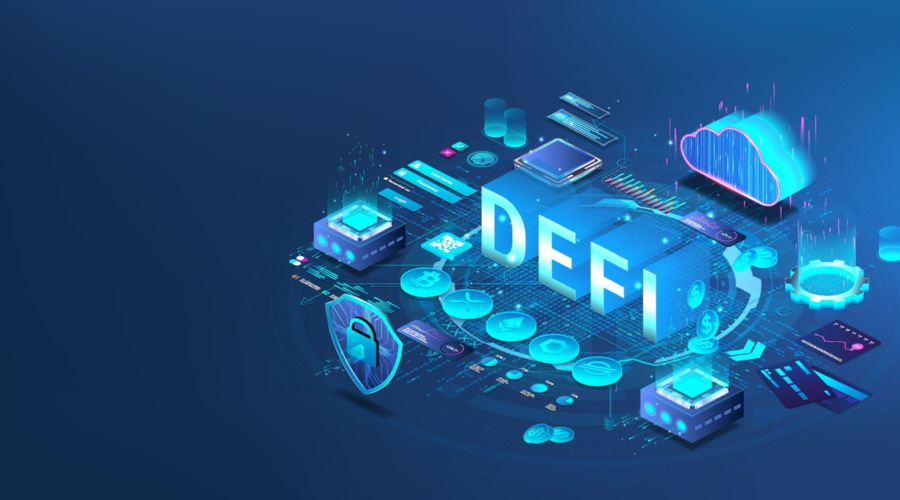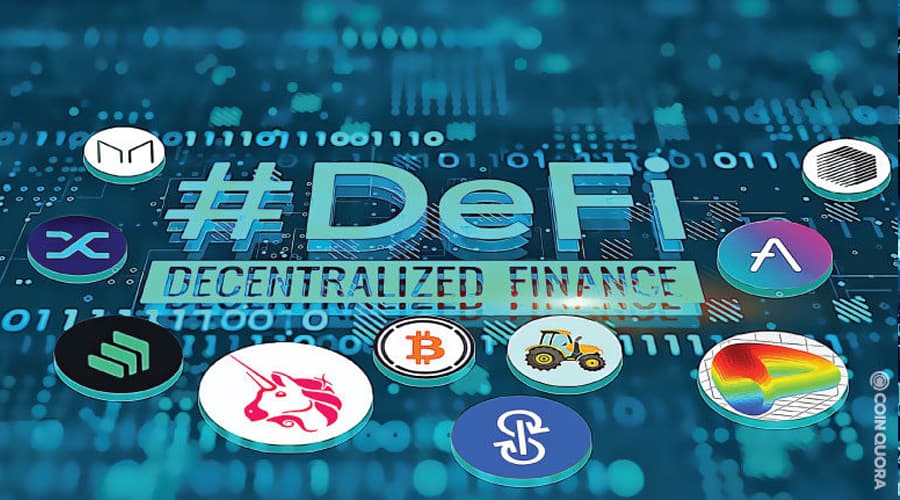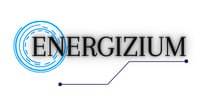
Enhancing DeFi Security through Decentralized Governance
Cryptocurrencies and decentralized finance (DeFi) have revolutionized the financial landscape, offering innovative ways to transact, lend, borrow, and earn. However, with the increasing popularity of DeFi, security risks have become a growing concern. To mitigate these risks, decentralized governance plays a crucial role in enhancing the security and reliability of DeFi protocols. In this article, we will explore the concept of DeFi governance, its significance in DeFi security, successful examples, challenges, and strategies for improvement.
Introduction
DeFi refers to a set of financial applications and protocols built on blockchain technology that aims to eliminate intermediaries and provide open, permissionless financial services. While DeFi has unlocked new possibilities, it has also exposed participants to security vulnerabilities. Decentralized governance serves as a mechanism to address these vulnerabilities by involving the community in decision-making processes and ensuring transparency, accountability, and resilience.
Understanding DeFi and its Security Challenges
DeFi protocols operate on decentralized networks, utilizing smart contracts to automate transactions, lending, and other financial activities. However, the immutable nature of smart contracts means that any vulnerabilities or bugs in the code can be exploited, leading to financial losses. Additionally, malicious actors can launch attacks on DeFi protocols, compromising user funds and trust in the ecosystem. These security challenges highlight the need for robust mechanisms to protect DeFi participants.
The Role of Decentralized Governance in DeFi Security
Decentralized governance in DeFi involves giving decision-making power to the community, typically through token holders. It establishes a framework for collective decision-making, consensus-building, and risk management. By involving stakeholders in the governance process, DeFi protocols can effectively address security concerns and adapt to evolving threats.
Definition and Importance of Decentralized Governance
Decentralized governance refers to the practice of distributing decision-making authority across a network of participants. It ensures that no single entity or central authority has excessive control over the protocol. Instead, decisions are made collectively, considering the input and preferences of token holders and other community members. DeFi governance is crucial for maintaining the integrity, security, and long-term sustainability of DeFi ecosystems.
Key Components of Decentralized Governance in DeFi

Decentralized governance in DeFi comprises several key components that work together to ensure the security and stability of protocols. These components include:
- Token Holders and Voting Mechanisms: Token holders play a vital role in DeFi governance. They possess voting rights that enable them to participate in decision-making processes. Voting mechanisms, such as on-chain voting or delegation, allow token holders to voice their opinions, propose changes, and collectively determine the protocol’s direction. This ensures that decisions align with the interests of the community.
- Smart Contracts and Auditing: Smart contracts serve as the backbone of DeFi protocols. They facilitate the automated execution of transactions and enforce predefined rules. However, flaws in smart contract code can lead to vulnerabilities and potential exploits. Regular security audits by independent firms help identify and mitigate these risks, enhancing the security of DeFi protocols.
- Risk Management and Insurance: Risk management is a critical aspect of DeFi governance. DeFi protocols should implement robust risk management strategies, including collateralization mechanisms, liquidation mechanisms, and risk assessment frameworks. Insurance options, such as decentralized insurance protocols, can further protect users from potential losses.
- Security Audits and Bug Bounties: Regular security audits are essential to identify vulnerabilities and weaknesses in DeFi protocols. Bug bounties incentivize external security researchers to discover and report vulnerabilities. These practices create a collaborative environment for identifying and resolving security issues promptly.
Benefits of Decentralized Governance in Enhancing DeFi Security
Decentralized governance offers several benefits in enhancing DeFi security. These benefits include:
- Transparency and Accountability: Decentralized governance ensures transparency in decision-making processes. All proposals, discussions, and voting outcomes are publicly available, enabling participants to scrutinize the governance activities. This transparency promotes accountability among protocol developers, reduces information asymmetry, and builds trust within the community.
- Community Involvement and Consensus: DeFi governance encourages community involvement, enabling token holders and users to actively participate in shaping the future of DeFi protocols. Through open discussions and voting mechanisms, consensus can be reached on critical decisions, preventing centralization of power and promoting a more democratic ecosystem.
- Rapid Response to Security Threats: Decentralized governance allows for agile responses to security threats. When vulnerabilities are discovered or attacks occur, the community can quickly coordinate and implement necessary changes or upgrades to mitigate the risks. This flexibility reduces the impact of potential security breaches and increases the overall resilience of DeFi protocols.
Successful Examples of Decentralized Governance in DeFi
Several DeFi projects have successfully implemented DeFi governance mechanisms to enhance security. Let’s explore some notable examples:
- MakerDAO and MKR Token: MakerDAO, a leading DeFi protocol, leverages decentralized governance through its MKR token. MKR holders participate in voting to determine critical parameters of the protocol, such as stability fees and collateral types. This active involvement of the community ensures the protocol’s stability and aligns incentives among participants.
- Compound and COMP Token: Compound is another prominent DeFi protocol that incorporates decentralized governance using the COMP token. COMP holders can propose and vote on protocol upgrades, changes to interest rates, and even the addition of new assets. This community-driven decision-making process empowers users and fosters a more resilient lending and borrowing ecosystem.
- Uniswap and UNI Token: Uniswap, a decentralized exchange (DEX) protocol, introduced DeFi governance through the UNI token. UNI holders have the power to propose and vote on governance proposals, including fee adjustments, token listings, and protocol upgrades. This participatory approach ensures that Uniswap evolves according to the needs and preferences of its users.
Challenges and Limitations of Decentralized Governance in DeFi Security
While decentralized governance brings significant benefits, it also faces certain challenges and limitations:
- Sybil Attacks and Voting Manipulation: DeFi governance systems are vulnerable to sybil attacks, where malicious actors create multiple identities to manipulate voting outcomes. These attacks can undermine the integrity of decision-making processes. Implementing robust identity verification mechanisms and reputation systems can help address this challenge.
- Complexity and Learning Curve: Decentralized governance can be complex for newcomers, requiring an understanding of token economics, voting mechanisms, and protocol dynamics. Improving user education and simplifying user interfaces can lower the learning curve, making decentralized governance more accessible to a wider audience.
- Centralization of Power: Ironically, DeFi governance can sometimes result in power concentration among a small group of influential token holders. This concentration of power may undermine the democratic nature of governance and pose potential risks. Striking a balance between inclusivity and avoiding centralization remains an ongoing challenge.
Strategies for Improving Decentralized Governance in DeFi Security
To enhance decentralized governance in DeFi security, several strategies can be employed:
- Education and User Awareness: Promoting education and raising user awareness about DeFi governance is crucial. Clear and accessible educational resources can empower users to understand their rights, participate effectively, and make informed decisions. Community-led initiatives, documentation, and tutorials play a vital role in fostering a knowledgeable user base.
- Incorporating Reputation Systems: Implementing reputation systems can provide additional safeguards against sybil attacks and voting manipulation. These systems assess users’ track records, contributions, and participation history, allowing more weight to be given to trusted and reputable individuals. Reputation-based governance can strengthen the integrity of decision-making processes.
- Decentralized Identity Solutions: Utilizing decentralized identity solutions can help verify the authenticity of participants in decentralized governance. By linking real-world identities to cryptographic credentials, the risk of sybil attacks can be reduced, ensuring that each participant has a unique and verified identity.
Future Trends and Innovations in Decentralized Governance for DeFi Security
The field of decentralized governance in DeFi is continuously evolving, and several future trends and innovations are on the horizon:
- Layer 2 Scaling Solutions: Layer 2 scaling solutions, such as state channels and sidechains, can alleviate congestion and scalability challenges faced by DeFi governance systems. These solutions can enable faster, more efficient voting processes and reduce transaction costs, making governance more accessible and inclusive.
- Cross-Chain Interoperability: As DeFi expands across multiple blockchain networks, cross-chain interoperability becomes essential for decentralized governance. Interoperability protocols and bridges enable governance participants to interact and vote seamlessly across different blockchains, fostering collaboration and enabling DeFi governance to span multiple ecosystems.
- Decentralized Oracle Networks: Decentralized oracle networks provide external data to DeFi protocols, enabling them to make informed decisions. By incorporating decentralized oracles, governance processes can take into account real-world events, market conditions, and other relevant data, enhancing the accuracy and effectiveness of decision-making.
Conclusion
Decentralized governance plays a pivotal role in enhancing the security and resilience of DeFi protocols. It enables community participation, transparency, and accountability, ultimately leading to a more secure and trustworthy ecosystem. While challenges and limitations exist, strategies for improvement, such as education, reputation systems, and decentralized identity solutions, can address these concerns. As the DeFi space continues to evolve, embracing future trends like layer 2 scaling and cross-chain interoperability will further enhance DeFi governance in DeFi security, creating a robust and inclusive financial landscape.
FAQs
FAQ 1: Can decentralized governance completely eliminate security risks in DeFi?
Decentralized governance is a powerful mechanism for mitigating security risks in DeFi. However, it cannot completely eliminate all risks. It is essential to implement other security measures such as regular audits, bug bounties, and risk management strategies to achieve a comprehensive security framework.
FAQ 2: How can token holders participate in the decision-making process?
Token holders can participate in the decision-making process by actively engaging in voting on governance proposals. They can either vote directly or delegate their voting power to trusted representatives. By staying informed, participating in discussions, and casting their votes, token holders influence the governance outcomes.
FAQ 3: Are there any regulatory challenges for decentralized governance in DeFi?
Regulatory challenges exist in the realm of DeFi governance. As the regulatory landscape evolves, it is important for projects to ensure compliance with relevant regulations. Engaging with regulators, seeking legal counsel, and adopting transparent governance practices can help navigate these challenges effectively.
FAQ 4: What are some recommended security practices for DeFi users?
DeFi users should follow best practices to enhance their security. These include using hardware wallets, double-checking smart contract addresses, utilizing multi-factor authentication, avoiding suspicious links, and staying informed about potential risks and scams. Conducting thorough research before interacting with DeFi protocols is crucial.
FAQ 5: How can DeFi projects encourage wider community participation?
DeFi projects can encourage wider community participation by creating user-friendly interfaces, simplifying governance processes, and providing educational resources. Offering incentives, such as governance token rewards, can also motivate users to actively engage in decision-making and contribute to the protocol’s development and security.
I’m a professional writer. I have been writing about Cryptocurrencies for more than 2 years now and I consider myself one of the best authors in this field. I am very passionate about this technology and I believe that it will change the world as we know it. If you want to learn more about cryptocurrencies, you should definitely check out my work!


